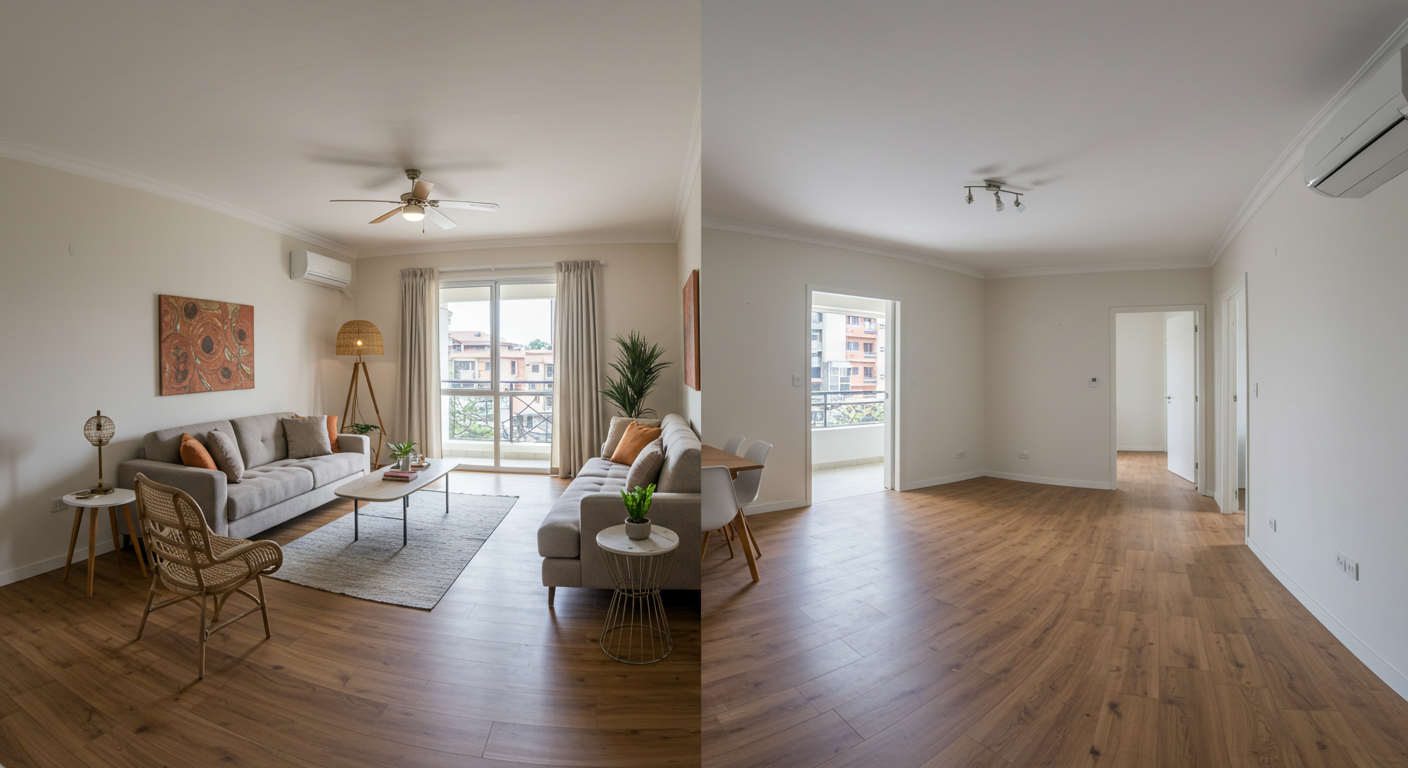- Real estate investments are quickly gaining momentum amongst Kenyans.
- Airbnb has become a popular choice, especially in urban centres and tourist hotspots.
- Long-term rentals involve leasing a property for an extended period, typically six months or more.
Real estate investments are quickly gaining momentum amongst Kenyans. With the increasing demand for housing, both short-term and long-term rental options have become attractive avenues for investors looking to generate passive income. But when it comes to profitability, which is the better option, Airbnb or long-term rentals?
Table of Contents
Understanding Airbnb in Kenya
Airbnb has become a popular choice, especially in urban centres and tourist hotspots like Nairobi, Mombasa, Diani, and Naivasha. This short-term rental model allows property owners to list their spaces on Airbnb and earn money per night, much like a hotel.
Advantages of Airbnb
- Higher Rental Income Potential – Since Airbnb guests pay per night, hosts can make more money compared to fixed monthly rents. If a unit is well-managed and enjoys high occupancy, the income can surpass long-term rental rates.
- Flexibility – Property owners can block dates for personal use or switch between Airbnb and long-term rentals depending on market conditions.
- Shorter Commitments – Unlike traditional leases, Airbnb rentals don’t lock landlords into long-term agreements. If the market shifts, hosts can adjust their pricing or rental model.
- Furnished Units Attract Premium Prices – Well-furnished apartments can charge higher rates, especially if they offer amenities like Wi-Fi, smart TVs, and proximity to key locations.
Challenges of Airbnb
- Occupancy Fluctuations – Unlike long-term rentals that guarantee consistent monthly income, Airbnb earnings depend on occupancy rates, which can vary due to seasons and economic factors.
- Higher Operational Costs – Frequent cleaning, utility bills, restocking essentials, and maintenance costs can eat into profits.
- Strict Regulations & Taxes – Some county governments in Kenya are imposing levies on short-term rental operators, reducing the net income for hosts.
- Security Concerns – With multiple guests coming and going, the risk of property damage or theft is higher compared to long-term rentals.
Understanding Long-Term Rentals in Kenya
Long-term rentals involve leasing a property for an extended period, typically six months or more. This model is popular in residential areas where tenants prefer stability.
Advantages of Long-Term Rentals
- Stable and Predictable Income – Landlords receive fixed monthly rent, reducing uncertainty and ensuring a steady cash flow.
- Lower Operational Costs – Tenants cover most utility bills and minor maintenance costs, unlike Airbnb hosts who handle these expenses.
- Less Management Effort – Once a tenant moves in, landlords don’t have to deal with frequent guest check-ins, cleanings, or fluctuating pricing.
- Lower Initial Investment – Unlike Airbnb, which requires furnishing, long-term rentals allow landlords to rent out unfurnished spaces, reducing upfront costs.
Challenges of Long-Term Rentals
- Lower Income Potential – Monthly rental income is generally lower than what an Airbnb unit can generate if fully booked.
- Tenant-Related Risks – Dealing with problematic tenants who delay payments or damage property can be a challenge.
- Limited Flexibility – Once a lease is signed, landlords have limited options to adjust rental rates or reclaim their property until the contract ends.
Which One is More Profitable in Kenya?
Profitability depends on several factors:
- Location – In high-tourism areas and business hubs, Airbnb tends to be more profitable due to high demand. In suburban and rural areas, long-term rentals are more stable.
- Management Commitment – Airbnb requires active management, marketing, and constant upkeep. If you prefer a hands-off approach, long-term rentals are the better option.
- Market Trends – If tourism and short-term stays remain in high demand, Airbnb will continue to offer higher returns. However, in tough economic times, long-term rentals provide more security.
Conclusion
If you’re in a prime location and can actively manage your property, Airbnb offers higher income potential. However, if you value stability and minimal management, long-term rentals provide a more predictable and hassle-free experience.
Ultimately, the choice comes down to your investment goals, risk tolerance, and willingness to be hands-on with property management.
Which model do you think works best for you?



